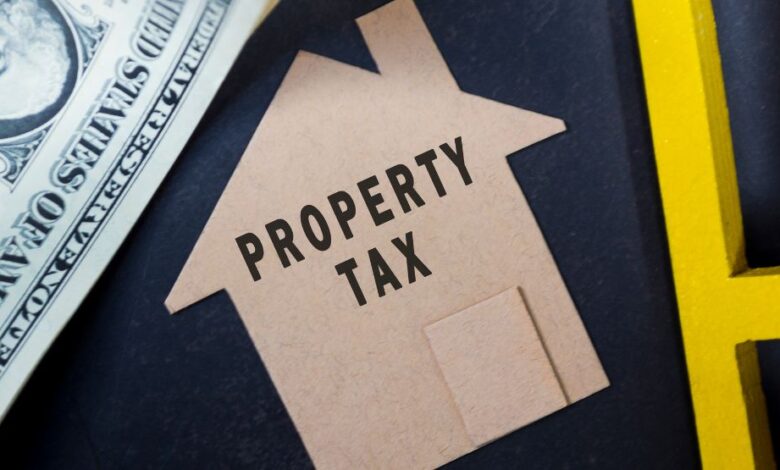
This has been suggested by the Greater Chennai Corporation in its aggressive stand on this issue as a compliance measure under the Tamil Nadu Urban Local Bodies Rules, 2023 that the property tax rates be increased by 6% every year. This proposition was presented under the Tamil Nadu Urban Local Bodies Rules, 2023 to be implemented from the following financial year and hence much furore among local councillors and citizens of the city due to the reasons that this would only penalize low-income families and individuals.
Under this decree of the GCC, the yearly value of land, buildings, and structures shall be computed on one of the bases: simple average growth rate during the previous five years of the Gross State Domestic Product or a flat increase at 6 percent, whichever rate is higher. This is a step in the comprehensive strategy to make local government entities position themselves to hold onto their revenues when costs increase, and their needs for urban development change. The state’s move follows the condition laid by the Union government before it could disburse grants to the local corporation, thus forcing the GCC to align with the condition.
There appear to be economic justifications as to why such an increase had to come, but process effects seem to discomfort many residents. The increase has been branded against those in smaller homes measuring approximately around 200-300 square feet. Most of these residents go on work every day, and inflationary pressures brought inflation coupled with a rise in the costs of living to be represented in their income packages.
Major Factors Driving the Tax Hike
Economic Pressure:
Perhaps, the major point that can be cited as a reason for tax rise is that the GCC needs to hike revenues at a time when the expenses toward urban infrastructure, sanitation, and public services are rising with growth in Chennai, requiring funds to be increased.
Government Compulsions:
Some compulsions from the Union government in respect of grants to local bodies involve annual revision of taxes. An external compulsion of this kind has also been a contributory factor for the GCC to introduce an annual rise.
Inflation and Cost of Living:
General economy climate of inflation and cost of living plays even more importance as is the case with the GCC, as it tries to bring the property tax revenues in line with the economic environment, one that is dotted with inflation and increasing cost of living, in comparison to the citizens of the GCC who are being burdened by the accumulating monetary burdens.
Sectoral Impact of Tax Hike
This surge in property tax will be different in each sector:
Household Sector:
Whether owners or tenants, both would now face high tax liabilities. And in a city where housing in Chennai has reached a dangerous situation, increased tax liability may create further unrest. Poor families dwelling in slum and informal accommodation may find the whole structure of tax liability to be nerve-racking enough.
Commercial Sector:
Entrepreneur firms will also bear the pin of high property taxes which may lead to the rise of renting for commercial property. This will make some, discourage or even fall further new investment in the city. The existing business may be challenged to their best extent especially the small scale with thin margins.
Real Estate Development:
Maybe because the costs of operations have gone up with higher taxes, developers might look back on the feasibility of projects. That could be potential trouble as new housing development and commercial ventures may slow down, impacting jobs and, indirectly, economic growth.
Public Services:
The more the hike, the more funds generated to be used for public services, but the reaction from the community will be an intensification of the fight against further hikes in utility charges or other fees, adding extra pressure on the GCC to curb its budget.
Community Response and Alternatives
This is not a surprise for one and all as local councillors oppose the annual rise in tax. They are asking why the annual statutory increase cannot find a more sensitive hike on the size of property and local income as sounding apt and fair. For example, CPI councillor M Renuka said: “A flat rate of increase would gradually reduce the burden of taxes and revenues created on the most vulnerable lot of people.”
There is also the rising frustration of the residents. It is one driven by many who feel not represented in decisions affecting their lives and overall well-being.
Conclusion
A 6% annual increase in property tax rates reflects only the more significant economic pressures and government mandates that come with the move by the GCC but then hikes real equity and sustainability concerns. In this context, if accelerating and rapidly accelerating urbanization and new challenges of economy are to be seen, then the local governments would have to come up with more progressive taxation policies that are impartial. Hence balance imperative for raising revenue with support for vulnerable groups would become important for a robust, resilient, and equitably potent urban environment. One of the ways forward in the creation of long-term stability would be finding creative solutions in response to every member of the city.




